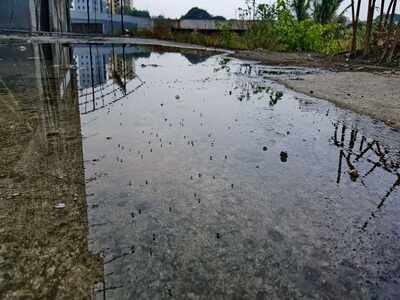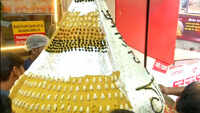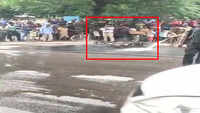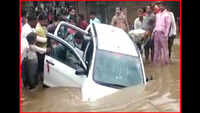
PUNE: A majority of dengue cases — 233 out of 309 — were concentrated in the six ward areas of the Pune Municipal Corporation this year, which can be partially attributed to heavy and persistent waterlogging at these locations during the August rain.
This has been revealed in the latest report of the PMC insect control department, which takes into account only confirmed cases of dengue tested at government-designated sentinel centres in the city.
As per the report, Dhole Patil, Yerawada-Kalas Dhanori, Ahmednagar Road-Wadgaonsheri, Ghole Road- Shivajinagar, Kasba-Vishrambaugwada and Bhavani Peth municipal ward areas recorded 75% of all the dengue cases in the city this year.
“The city recorded incessant rainfall and waterlogging in August this year. The localities in the worst-hit six municipal wards recorded massive waterlogging during this period. Patches of accumulated water, caused by heavy rainfall or river overflow, were the prime breeding sites for the mosquitoes, especially the denguetransmitting Aedes aegypti,” public health expert Sanjeev Wavare, who is also the head of the insect control department at PMC, told TOI.
The report also revealed that the mosquito-borne disease was prevalent in all the 16 municipal ward areas of the city. “Besides the water accumulation during the heavy August rain, the intermittent showers amid sunny days, which followed thereafter, also provided conducive environment for the disease-causing mosquitoes,” a health expert said.
The objective of the wardwise mapping of dengue cases is to intensify surveillance and containment activities in the identified high risk areas so that the situation does not spiral out of control, a civic health official said.
On the measures the civic body is taking to control the situation, Wavare said, “We have already started destroying the breeding sites on a war footing. Besides, we have also intensified our surveillance across the city and have pressed into service high-capacity vehicles with fogging machines in the worst-hit areas. The highly concentrated fogging that covers around half a kilometre area will kill the infected adult mosquitoes and help contain the disease.”
In Kharadi, Columbia Asia hospital alone recorded 244 dengue cases (including those confirmed by the sentinel centres) between July 1 and September 4 this year.
“There is an urgent need to implement an effective and sustainable disease-control strategy in the city. The vectorborne diseases’ control programme continues to focus primarily on responding to outbreaks rather than preventing them,” the hospital’s infectious diseases expert Mahesh Lakhe said.
Favourable climactic conditions, accumulation of water, increasing construction activity, piling up of garbage, lack of public awareness vis-àvis personal anti-mosquito measures and inadequate mosquito management have aggravated the situation, experts said.
This has been revealed in the latest report of the PMC insect control department, which takes into account only confirmed cases of dengue tested at government-designated sentinel centres in the city.
As per the report, Dhole Patil, Yerawada-Kalas Dhanori, Ahmednagar Road-Wadgaonsheri, Ghole Road- Shivajinagar, Kasba-Vishrambaugwada and Bhavani Peth municipal ward areas recorded 75% of all the dengue cases in the city this year.
“The city recorded incessant rainfall and waterlogging in August this year. The localities in the worst-hit six municipal wards recorded massive waterlogging during this period. Patches of accumulated water, caused by heavy rainfall or river overflow, were the prime breeding sites for the mosquitoes, especially the denguetransmitting Aedes aegypti,” public health expert Sanjeev Wavare, who is also the head of the insect control department at PMC, told TOI.
The report also revealed that the mosquito-borne disease was prevalent in all the 16 municipal ward areas of the city. “Besides the water accumulation during the heavy August rain, the intermittent showers amid sunny days, which followed thereafter, also provided conducive environment for the disease-causing mosquitoes,” a health expert said.
The objective of the wardwise mapping of dengue cases is to intensify surveillance and containment activities in the identified high risk areas so that the situation does not spiral out of control, a civic health official said.
On the measures the civic body is taking to control the situation, Wavare said, “We have already started destroying the breeding sites on a war footing. Besides, we have also intensified our surveillance across the city and have pressed into service high-capacity vehicles with fogging machines in the worst-hit areas. The highly concentrated fogging that covers around half a kilometre area will kill the infected adult mosquitoes and help contain the disease.”
In Kharadi, Columbia Asia hospital alone recorded 244 dengue cases (including those confirmed by the sentinel centres) between July 1 and September 4 this year.
“There is an urgent need to implement an effective and sustainable disease-control strategy in the city. The vectorborne diseases’ control programme continues to focus primarily on responding to outbreaks rather than preventing them,” the hospital’s infectious diseases expert Mahesh Lakhe said.
Favourable climactic conditions, accumulation of water, increasing construction activity, piling up of garbage, lack of public awareness vis-àvis personal anti-mosquito measures and inadequate mosquito management have aggravated the situation, experts said.
Quick Links
Lok Sabha Election Schedule 2019Lok Sabha Election NewsDelhi Capitals teamMI team 2019Rajasthan Royals 2019RCB team 2019Maharashtra Lok Sabha ConstituenciesBJP Candidate ListBJP List 2019 TamilnaduShiv Sena List 2019AP BJP List 2019Mamata BanerjeeBJP List 2019 MaharashtraPriyanka GandhiBJP List 2019 KarnatakaAMMK Candidate List 2019BJP List 2019 WBLok Sabha Elections in Tamil NaduBSP List 2019 UPNews in TamilLok Sabha Poll 2019Satta Matka 2018PM ModiMahagathbandhanNagpur BJP Candidate ListChandrababu NaiduTamil Nadu ElectionsUrmila MatondkarNews in TeluguMadras High CourtTejashwi YadavArvind KejriwalTejasvi SuryaPawan KalyanArvind KejriwalYogi AdityanathJaya PradaSatta King 2019Srinagar encounter
Get the app









